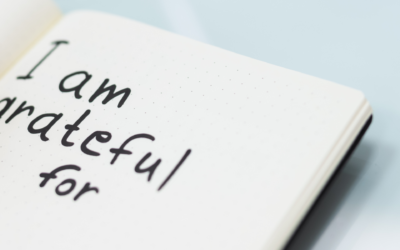A study revealed that only 45% of Australian adults are satisfied with their sleep, with snoring purported to play a large part in that. Frequent, loud snoring is reported by 24% of men and 17% of women in Australia, and among those, 63% reported awakening feeling unrefreshed, and 65% reported one or more daytime sleep-related symptoms.
Unfortunately, there’s only so many times you can nudge a sleeping partner without waking them up completely, and for most, shuffling off to a spare room in the middle of the night or crashing on the couch isn’t a long-term solution. So in this weeks’ Wellness Matters, we explored the possible causes and solutions to snoring so that you can get a better slumber!
So what is causing the snoring?
The cause of snoring is relatively simple; when you sleep, all of the muscles in your body become more relaxed. This includes the muscles that help keep your throat open so air can flow into your lungs. Normally, your throat remains open enough during sleep to let air pass by. Some people have a narrow throat, so when the muscles in their upper throat relax during sleep, the tissues close in and block the airway. As the airway narrows the more forceful the airflow becomes. This increases the vibration causing the snoring to become louder and louder.
Why do some people snore and others don’t?
Those who have nasal congestion, enlarged tonsils or tongue, excess weight around the neck, as well as structural reasons like the shape of the nose or jaw can also cause snoring.
When to be concerned with snoring
If you find that you or your partner are experiencing a lack of sleep, or daytime symptoms of fatigue, this can be a serious problem which impacts all areas of life including work, relationships, productivity, and our mental & physical health. It is also very important to make sure your snoring is not related to an underlying sleep disturbance, called Obstructive Sleep Apnoea.
Sleep Apnoea affects 5-10% of adults in Australia, although the number is difficult to quantify as about 80% of Australians affected by sleep apnoea are undiagnosed. Sleep Apnoea is when a person stops breathing repeatedly during sleep; symptoms of the condition include loud and persistent snoring, witnessed pauses in breathing and/or choking or gasping for air. They can also present as early morning headaches, excessive daytime fatigue and depression or irritability.
If left untreated, Sleep Apnoea can have serious short and long-term health risks including heart disease, type 2 diabetes, stroke and high blood pressure.
You can take a short quiz here if you’re concerned you may have Sleep Apnoea, it is also best to speak to your Doctor about an official diagnosis.
Some reasons and remedies to help stop snoring
A common reason (especially in the colder seasons) for snoring is nasal congestion. This is due to a build-up of mucus which constricts the nasal airways. Before bed, rinse stuffy sinuses with saline or warm salty water using sinus care product such as Flo Sinus Care. You can use the sinus cleaner in the shower as a combination with the steam from the hot water, to help clear the nasal passage and get rid of the mucus build-up.
If narrow nostrils or congestion are the cause of snoring, then there are options such as nasal dilators or nasal strips, which work differently to do the same thing – widen the nasal passages to allow increased airflow, but these are a temporary solution, and recommended mainly for short term usage.
Changing your sleeping position can also help, if you’re usually a back sleeper, there is more pressure on your airways, which can narrow the breathing passages which lead to lack of air and snoring. Laying on your side will help the air flow. You can also try sleeping in a reclined position by raising the head of your bed, so you end up sleeping with your head raised slightly and changing the air flow through your mouth and nose.
Allergens in your bedroom and in your pillow may contribute to snoring. Regular cleaning in your bedroom and keeping your pillow covers fresh will help If you have hay fever or other allergies, which can get triggered by dust and dander. If swollen nasal tissues are the problem, a humidifier or medication may reduce swelling.
If you are overweight, snoring tends to be worse, extra weight around our neck and chest narrows our airways and limits breathing, so it’s important to maintain a healthy weight.
Things that can trigger snoring
Alcohol
Alcohol causes you to snore by relaxing your throat and mouth muscles, but it can also have an even bigger impact on your quality of sleep. You might fall asleep even faster when you drink alcohol, but what happens after you fall asleep isn’t your typical sleep cycle. When drinking alcohol, the body spends less time in REM sleep (which is the most important sleep for concentration and motor skills) which means that you will wake up with feeling less refreshed.
Blue light
Studies show 99% of individuals exposed to bright (blue) light have lower melatonin levels. Melatonin is the hormone which makes you sleepy, so lower melatonin means you’re less fatigued and will struggle to wind down. If you absolutely have to use screens before bedtime, try using a blue light filter – these are available on some phones, as well as external apps for your computer, or you can get blue light filter glasses (with or without a prescription).
We hope this information has come in handy and assisted or inspired you to get the best quality sleep possible! Please let us know if there are any topics you would love us to look into, or you have any queries or feedback. You can reach us here to share your thoughts.

